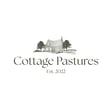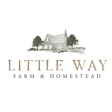
Foie Gras, Farming as a Catholic and More with Ross and Dorothy McKnight
Ross & Dorothy McKnight, of Backwater Foie Gras, are an inspiration and pioneering Catholic couple. They have built a reputable farming business without a background in farming or homesteading. This was an exciting interview where we learned about Foie Gras, the McKnight's journey to farming and manners in which the Catholic Faith can be unpacked on the homestead.
The Mcknight's interview is one that echoes many themes in our own lives - that a lifestyle firstly inspired by the Catholic Faith, is good. That raising children on a homestead is beneficial and that a life in pursuit of Heaven is always worth living.
We are inspired by this interview, and not just about our newfound understanding of Foie Gras, but about the need for perseverance and continually striving to respond to God.
Additional Notes:
Backwater Foie Gras offers courses to help instruct people in homesteading and farming methods. Be sure to consider joining Ross and team at Backwater Foie Gras during an in-person course including the upcoming Art of Foie Gras.
Real Estate for Life is a real estate brokerage with over 1,400 Prolife Real Estate Agents worldwide. They have completed over 10,000 real estate transactions and they report 65% of their revenue goes to a Prolife or Catholic Apostolate. You can quickly find an agent near you through their website at Realestateforlife.org. And if you let them know that you learned about Real Estate for Life from Little Way Farm and Homestead, that helps support our family in continuing the work of Little Way Farm and Homestead. Now, back to the episode.
Link: https://realestateforlife.org/
For more information about Little Way Farm and Homestead, including the farm, podcast, and upcoming projects, check out LittleWayHomestead.com.

